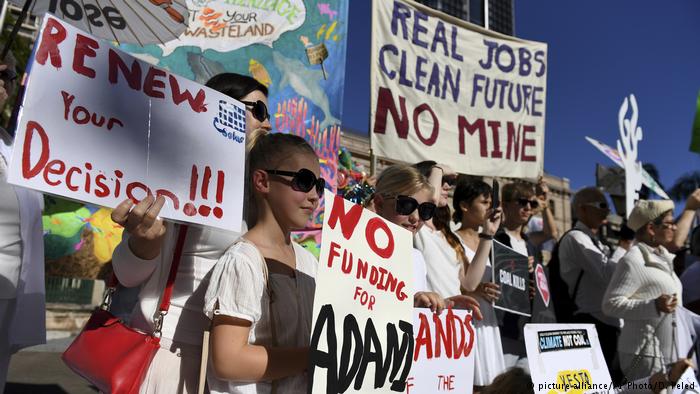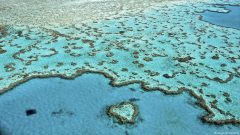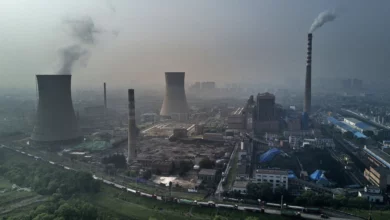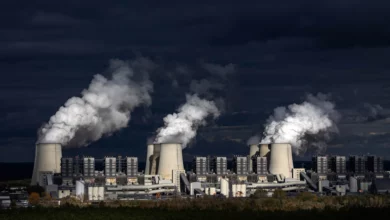
Indian mining conglomerate Adani has approved plans for the contentious Carmichael coal mine project in northeast Australia, despite warnings from environmentalists that it will further damage the Great Barrier Reef.
“We are still facing activists. But we are committed to this project. We are committed to regional Queensland and we are committed to addressing energy poverty in India,” Chairman Gautam Adani said Tuesday.
Work on the project is expected to begin in September, though the company still needs to secure billions of dollars in funding.
Loans from the Australian government have yet to be approved, and several major Australian banks have ruled out financing.
Environmental activists have vowed to consider all legal options to stop the project, and have called on all levels of government to reject funding for the project.

Map of the Great Barrier Reef showing results of aerial surveys for 911 reefs
Policy Paradox
The coal mine is planned to cover an area of 447 square kilometers (about 173 square miles) and will include six open-cast pits and five underground mines – making it one of world’s largest. Expected to produce 60 million tons of thermal coal a year for export to India, the mine is set to operate for up to 60 years.
“Now the time for waiting is over and the time for doing is beginning,” said Australian Resources Minister Matt Canavan on Tuesday, indicating that the project would pave the way for future mines in the region.
The government commitment to coal is a stark contrast to plans to provide “sustainable energy” for the region, announced by Queensland Premier Annastacia Palaszczuk on Monday, which included several initiatives aimed at supporting renewable energy and climate policies.
‘Doomed to Fail’
Activists have long warned about the project’s environmental risks, pointing out the threat to the nearby Great Barrier Reef and the fact that the massive coal mine is incompatible with Australia’s commitment to the Paris Agreement on climate change.
The project has been challenged in the courts by indigenous landowners and activists, who fear it will further damage the UNESCO World Heritage-listed reef, already suffering from warming oceans.
In 2016, the reef saw its worst bleaching event in history, which is being blamed at least in part on global warming.

The Great Barrier Reef, a UNESCO World Heritage site, is under threat from climate change (imago/blickwinkel via DW)
The United Nations agency said Saturday that “climate change remains the most significant overall threat to the future” of the 2,300-kilometer coral expanse, one of the top two tourist attractions in Australia.
The site, about the size of Italy, generates around 7 billion Australian dollars ($5.2 billion) in income per year and supports 70,000 jobs in sectors such as tourism, according to the Australian Climate Council.
Greenpeace Australia said Tuesday’s decision was “toxic” and a “disaster for the climate,” a charge echoed by WWF-Australia chief Dermot O’Gorman.
“Carbon pollution from burning coal is the single largest cause of global warming,” he said. “The Australian and Queensland governments should be investing in actions that protect the reef, not a new mine doomed to fail, that will hasten the reef’s destruction.”
Report by Deutsche Welle




